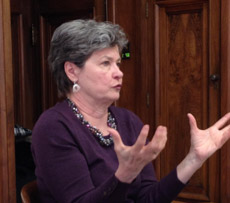Administrative Law (and the same might be said of Constitutional Law) is for losers. People who receive decisions from government that they like do not challenge them in Court. Principles of fairness and reasonableness are developed in the context of procedural fairness to losers in public decision-making - the student expelled from school, the professional denied a license to practice, the company fined for regulatory infractions, the vanquished in a labour dispute. This is, in some respects, as it ought to be. Persuading losers that an adverse decision was fair and reasonable is one of the central characteristics of the rule of law. But seen from another perspective, that of the integrity of public decision-making, whether a decision is positive or negative for a particular party is beside the point.
For example, since Roncarelli v. Duplessis, the rule of law in Canada has come to mean protection from arbitrary public decisions and public decisions based on ulterior and improper motives and public decisions made in bad faith. Such decisions might as easily be positive determinations grounded in corruption and favourtism as negative determinations which are punitive or discriminatory. Is the decision to grant a license based on the political stripe of an applicant any less offensive than the decision to deny a license on the same basis?

 Does civility matter in the practice of law? On March 6, 2014, The Hon. Madam Justice Katherine Swinton challenged the audience, at the Program on Ethics in Law and Business lunch time session on "Revisiting the Civility Debate," to consider how the legal profession should approach the incivility among its members.
Does civility matter in the practice of law? On March 6, 2014, The Hon. Madam Justice Katherine Swinton challenged the audience, at the Program on Ethics in Law and Business lunch time session on "Revisiting the Civility Debate," to consider how the legal profession should approach the incivility among its members.